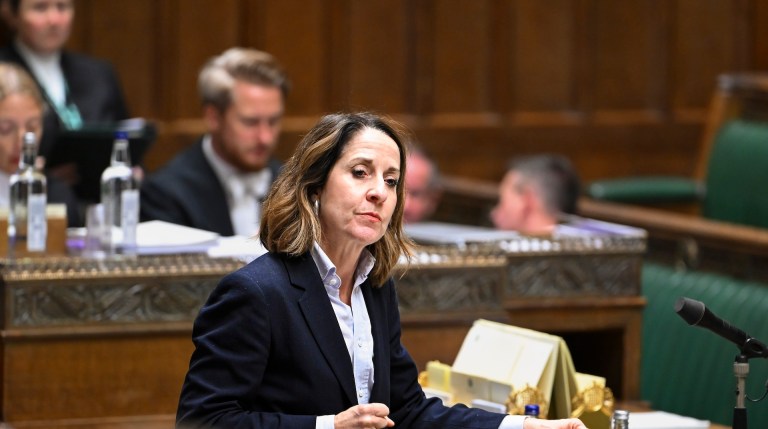In Scotland’s central belt, scores of imprisoned young men and boys are signing up to drama training. They’re in Polmont’s young offenders institution and led by Jess Thorpe, who has never stopped fighting for their opportunity to turn life around through storytelling. She’s behind a series of radical theatre programmes in prisons across Scotland and beyond, founded a charity to make arts a fundamental part of prison life and even took her work to the US. Now she’s on a mission to take the arts to every prisoner in the country.
“I’ve seen first-hand just how massively arts opportunities affect everything,” Thorpe, 37, told The Big Issue. “It changes their willingness to get involved in education, relationships with their families, their health and wellbeing. Some people don’t think that’s important – but fundamentally it’s how we’re going to create a safer country.”
Having grown up in Penrith, Thorpe moved to Glasgow aged 18 to study contemporary performance practice at the Royal Conservatoire of Scotland (RCS). Even then she was particularly interested in whose stories were allowed to be told on the stage, and who told them. Eventually taking up a position as a lecturer in applied performance there, one of her classes spent a week in residency at HMP Perth creating a show with the prisoners there. When she visited to see it performed, everything changed.
“Even before the performance I found being in a prison completely affecting. I wondered: are these spaces making people safer or better? After the show, the governor stood up and said it had been an amazing experience for the guys. Then one of the participants stood up, completely impromptu, and said ‘If it’s so amazing, why don’t we get more of it?’ That question has been driving me ever since.”
In 2009, RCS didn’t have an intake of students for Thorpe’s course, so she asked if she could put her teaching hours into Perth prison, where she would run a weekly drama class. The university and prison agreed, and Thorpe was an artist in residence there for seven years.
Thorpe went on to set up similar programmes in 10 other prisons, before she went to work on prison theatre projects around Detroit and Connecticut, where she explored the way theatre could bring families closer after the imprisonment of a relative had torn them apart.










